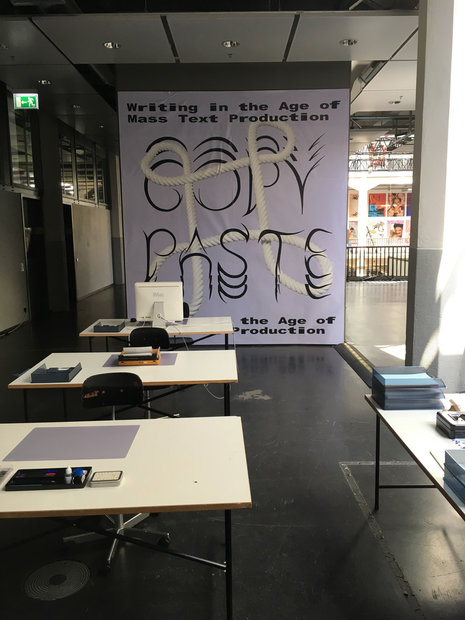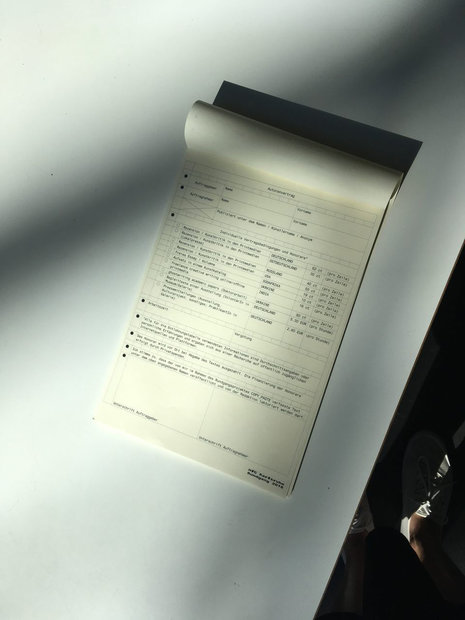

Graphics: Bárbara Acevedo Strange, Simon Knebl (© Dr. Lioudmila Voropai, Louisa Raspé, Lena Reitschuster)


Contract (© Dr. Lioudmila Voropai, Louisa Raspé, Lena Reitschuster)
In their writing, many significant authors like Walter Benjamin, Berthold Brecht, Terry Eagleton or Pierre Bourdieu deal deliberately with the influence of the means of production on the creation of text, in all their diverse forms and societal. Their conclusion: The authors have always moved in concrete production structures and institutional frameworks, which are historically located and determine the resulting texts both in terms of form and content. With this understanding, they turned against Kant's and Schelling's image of the "artistic genius," who are creatively active in a kind of transhistorical vacuum. Furthermore, Friedrich Kittler for instance noted that the written medium - whether typewriter, feather and ink, or pen - also affects the form and content and can direct flows of thought in their own way.
Over the course of the Rundgang, the project deals with these theories with an own working method on a practical. The participatory performance was divided into two rooms. In front of Room 112, a kind of Fordist writing factory was set up, where texts were produced using different media, with the subjective experiences and impressions of the Rundgang or of individual exhibited works as content. The text producers were, as is customary in the industry, paid per written line according to medium-, genre- and format-specific tariff models. In Room 112, in contrast to the previous situation, a post-Fordist workspace was set up, where the cosy living room-like atmosphere allowed comfortable oscillation between work to living. Here the producers were free to exploit the readily available spritzers and fruit.
Tutors: Dr. Lioudmila Voropai, Louisa Raspé, Lena Reitschuster